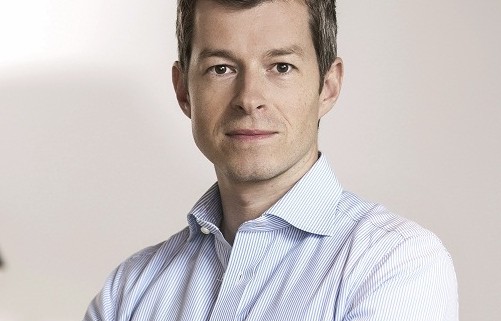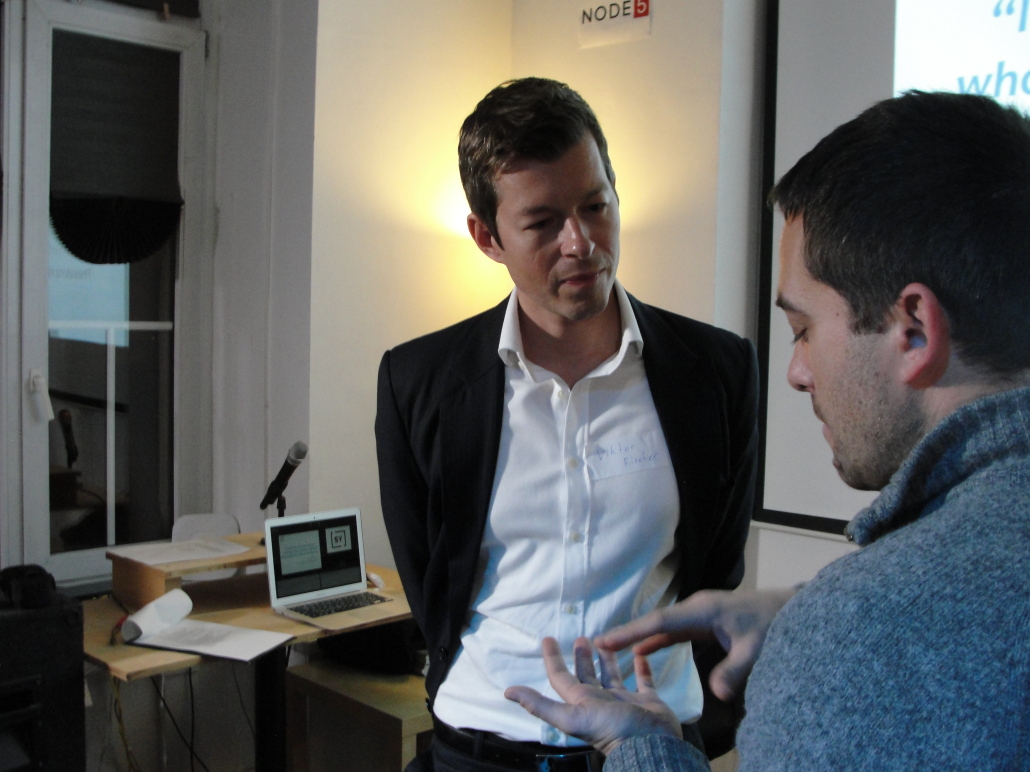StartupYard’s Viktor Fischer on Quitting Your Job, and Overcoming Fear
Hi Viktor. You’ve had a really interesting career, co-founding Innovatrics a decade ago, and most recently becoming a junior partner with McKinsey and Company. Can you tell us your personal story as an entrepreneur?
Hi Lloyd – sure, thanks for having me.
When we founded Innovatrics in 2004, I had no clue how to build a business. We created a software development kit around a fingerprint algorithm, put it online and waited to see who would buy it. When after 2 weeks no-one replied, we started to think about who might be the customer, what were their needs, what was the right product, what was the right pricing, and how we would sell it.
Early on we copied competition (copying is good), and negotiated licensing deals with major biometrics players such as Bioscrypt and CrossMatch – to survive. Over the next several years we found our niche: high-speed AFIS (Automated Fingerprint Identification Systems), defined the target customer segment. We fine-tuned the pricing and focused on the most efficient marketing & sales channels. Last year Innovatrics won Deloitte Top 50 in 2014 for its 344% revenue growth and last week was designated IT firm of the year in Slovakia. I am congratulating the team for those fantastic achievements.
After 5 years at Innovatrics, I decided to pursue an international MBA to grow my network and then entered McKinsey. Surprisingly, although McKinsey works for corporates, it follows a very entrepreneurial way of working. Projects (called “engagements”) are delivered by small teams (2 to 3 people full-time supported by experts and senior leaders), who work by quick iterations with the end product in mind (similar to “scrum methodology”). There is flat hierarchy and even junior members are encouraged to disagree with the most senior partners.
Aside from consulting, you are also an active angel investor. How do you pick your investments?
I only have 3 criteria: First, would I be a user of that product, and would I be excited to use it? This is my way of validating the value proposition.
Second, I need to know the management team, and have them be introduced by a person I trust.
Third, I need to have the knowledge I can use to help the startup. In broader terms, anything commercial, and in narrower terms, anything related to defining value proposition, validating product/market fit, modeling financial plan, raising funds, orchestrating B2B sales, or expanding internationally.
Have you ever broken one of those rules? If so, what was the result?
Yes, sometimes an edge in 1 or 2 criteria can balance-out the 3rd criteria. For example, recently I invested in MPower Financing via Angel.co. MPower provides loans to US university students coming from ethnic minorities.
Although I would not be a user of such a product, I like the mission of the company: I believe funding should not be a barrier to education. And I know the founders really really well (both CEO and CTO are my MBA classmates).
You recently left McKinsey to open your own club/bar, and focus on startups. What motivated the move? What will your club be like?
:Laughs: how much time do you have? I can talk for hours about this.
I think we do our best job when we do something we love (call it passion). There is one way that really worked for me to find that out: Think that tomorrow is the last day of your life. Really. Then imagine: If that was the case, what would you truly like to do today?
My answers were: A) go for a drink to a nice place with friends, and B) help startups grow. So I left the corporate job and bought an old but legendary nightclub called Meloun. The idea is to create an ultra-lounge like we all miss here in Prague. An exclusive place with great drinks and great music for a fantastic night out. It will be kind of a secret place so I cannot say more about it at this stage – sorry!
To help the startups, I am becoming more engaged with the teams, helping where necessary depending on the stage of the company, and more engaged with the local entrepreneurship community (including Startupyard).
Can you tell us the story of your favorite investment, and, if you have one, your biggest investment mistake or failure?
I don’t have a favorite investment – all my startups, those I invest in or simply advise are like children – no one is preferred.
Failure? Probably those I decided to pass on (yes, I’m thinking Gjirafa), or those where I miss the team’s engagement. There is nothing more demotivating than a non-motivated team. There are two mindsets with which a company is created: either to be a lifestyle business, or to build a company changing the world. There is nothing wrong with either of those. But it needs to be clear from the beginning to the team, the investors and the advisors.
You are an active StartupYard mentor, and you hosted a workshop with us this year. What motivates you to work with startups in your free time?
My sole motivator is to help startups avoiding mistakes I made. Whether it is in their value proposition, defining a target customer, pricing structure, international expansion, or even personal work-life-balance and facilitating discussions between shareholders. I have scars on my back in all these areas. I want to help people avoid getting a divorce, arguing with business partners or putting thousands of work hours into a feature that is not needed.
Do you believe that successful Czech entrepreneurs like yourself are giving enough back to the startup ecosystem in terms of attention, mentoring, and investment?
First of all, I am Slovak. Just kidding, I miss Czechoslovakia and I believe the countries together could again reach the 10th place in industrial production they had in 1938 – although in different industries :laughs:.
It will not happen however without the government’s support. When founding Innovatrics, we received around 150 thousand Euro from the French government to get us up and running. Although there is a risk to receiving government funds (often startups use that funding to delay product introduction to the market), there is an improvement in Government funding: the Czech government spends ~2% on GPD on R&D and Slovak government spends ~1% on R&D versus the US ~3%.
I know I am not answering your question, but I don’t know yet whether local entrepreneurs are helping enough. I know some of them invest through [prominent venture firms] Credo and Rockaway, or directly, and they mentor via Startupyard. But I don’t have a benchmark. It would be great to compare for example the amount of Czech angel and VC funding to overall angel and VC investments in the UK, and US, but I don’t think there’s a clear benchmark.
What is a piece of advice you find yourself giving over and over again to startups? What is the hardest piece of advice for startups to really listen to?
Overcome fear. Often I see startup entrepreneurs doing what is easy: sitting behind a computer developing the next feature set.
Call a prospective buyer or an expert to get early feedback. Find an expert via LinkedIn. Send the deck or a link to the demo and set-up a call. There are plenty of people out there who would help you. Doing it you have nothing to lose. Not doing it, you lose the opportunity to score your first customer or a future team member.
Sometimes it feels the hardest part for startups is to listen. Whether the founders are really able to listen, hear, reflect and incorporate the advice is what I am looking for during interviews.
Your career has been split between The Czech Republic, Slovakia, France, and recently Switzerland. How do you view the development of startup culture and investments in these different regions in recent years?
I cannot compare yet. But what I really like about the investment culture in other countries is the humility with which the investors and advisors help the entrepreneur. An entrepreneur is the shit, and our only mission is to help her succeed while increasing her self-confidence. Not the other way around (ie beat her idea and her self-confidence to death).
Are there things that bigger economies like France could learn from the startup and investing cultures in Slovakia or the Czech Republic?
I like how some of the local VCs really help the entrepreneurs think about the business during the investment process. They help to define and validate the value proposition, set up pricing, create financial model, key KPIs and develop a first 100-day plan. This process is beneficial to both parties and if I were the entrepreneur, I would embrace it fully.
Andrej Kiska recently told me in an interview that Czech (or Central European) investors are not as conservative as their reputations suggest. Do you agree with him?
I agree that the mindset is changing. That’s good. From my experience however, even as recently as the Webexpo couple of weeks ago, I noticed some investors using traction as their investment criteria (quote “For us to invest, you need to have customers. At least one.”) I think people should be the first criteria of choice and overseas that is understood.
What about StartupYard makes you keep coming back? How do you hope to have an impact on us as and our program?
This comes to my 2nd passion: helping startups grow. StartupYard is the largest local accelerator. Still however, some people do not know it. David Semerad from STRV mentioned during his talk at Webexpo that “YCombinator is like StartupYard but million times bigger”. I would like to help StartupYard bridge that gap, by making connections to the international market stronger and by voraciously helping startups export. If we’re Czech only, we will not be successful and our startups will not be successful.





